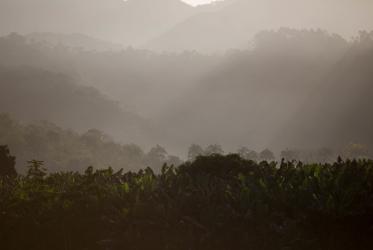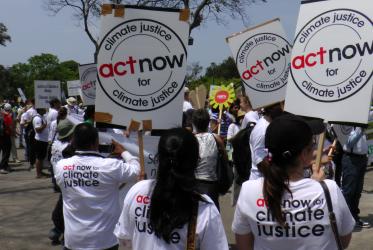Displaying 1 - 18 of 18
Voices from Colombia: “What if we have no land to till?”
15 February 2018
Protect the Amazon, urges WCC statement
22 November 2017
G20 summit: call to pray for peace in Hamburg
07 July 2017
G7 must address famine
22 May 2017
WCC/UN conference calls for coordinated action on refugee crisis
20 January 2016
COP21: how climate change affects access to our daily bread
09 December 2015
UN Climate summit results vital for world’s future
26 November 2015
Churches' “prophetic voice” will be busy in 2015
18 June 2015









